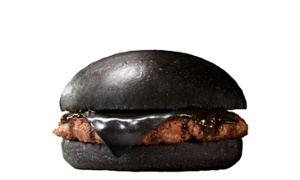The Royal Colleges of Physicians and GPs are opposed to Nice proposals for population-level prescription of statins (Doctors call for rethink on prescribing statins, 11 June). As one of the designers of the Newcastle University simulation on healthy ageing, it is gratifying to see this scenario being played in the real world. Coming in the same week that we hear that one-third of the population is at high risk of type 2 diabetes, perhaps we can consider an even more interesting scenario: tagging obese patients with stepometers? If this is combined with rewards and penalties, the question is also ethical and philosophical, not medical: by what moral authority should doctors control behaviour? A scenario today, but reality tomorrow?
Prevention of avoidable diseases is starting to look like the only way to save the NHS from bankruptcy, but this requires the NHS to become a behavioural-change organisation that promotes certain lifestyles. The power is there to do this. The GP contract can pay doctors to fill this new role, but isn't that morally dubious? Health follows an income gradient: the lower the income, the more unhealthy the "lifestyle". Unhealthy lifestyles of people on lower incomes are not freely chosen. Low pay, unemployment, and low social and economic status funnel through to low self-esteem. Stress and depression increase the risk of self-treatment via tobacco, alcohol, sugar and fat. Lower income also increases your likelihood of living in poor housing, and not being able to afford healthy food or exercise properly.
Doctors can intervene by filling people up with statins or forcing patients to wear new technology to monitor activity, blood sugar and cholesterol. Delivered at the population level, these measures will work by skating over the biggest cause of poor health, which is low income. Are doctors prepared to do this dirty work? They have a choice. Physicians and GPs are firmly camped in the top 1% of income. As inequality is becoming a hot topic and we are heading towards an era when unequal incomes might be addressed, might the colleges set an example by voluntarily limiting doctors' pay to a multiple of average income? Taking a hit in your own wallet is a powerful step, as befits the hallowed status of medicine.
Kenneth Charman
Visiting fellow, Changing Age Network, faculty of medical sciences, Newcastle University
• I was interested in Sarah Boseley's mention of the "nocebo effect" (Professor at centre of statins row says public being misinformed, 14 June), although it didn't quite explain the nature of this phenomenon, which really has little if anything to do with middle age, and perhaps more to do, as she says, with people just not wanting to be on pills. My late father, Dr Walter Kennedy, first coined the term "nocebo reaction" in a medical paper back in 1961. He used the Latin nocebo ("I shall injure") as the opposite of placebo ("I shall please") to indicate any unpleasant response to real or dummy treatment, this being a response within the patient themselves, and not due to the pharmacological action of a medication.
In other words, there is not a "nocebo effect", only a "nocebo response". Unfortunately, the term nocebo is sometimes used incorrectly for an active drug's unwanted pharmacologically induced negative side-effects. Kennedy clearly stated that nocebo responses should never be confused with true pharmaceutical side-effects.
Dr Peter Kennedy
Wivenhoe, Essex




















